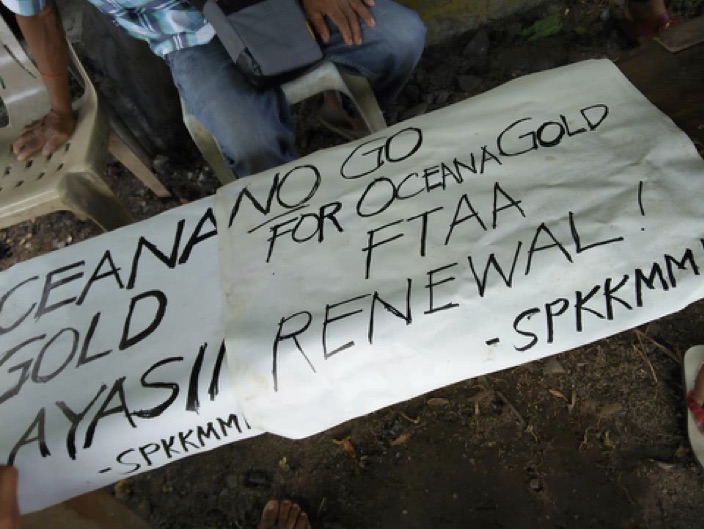
OceanaGold’s copper-gold mine in Didipio faces concerted opposition by local and indigenous Ifugao peoples living at its mine site in Didipio, Nueva Vizcaya, as well as from municipal and provincial elected officials. This clear lack of social licence across three relevant jurisdictions is reported to be one of the reasons the mine has not been successful in renewing its licence.
MiningWatch Canada and Jubilee Australia express grave concerns that the Philippine Department of Environment and Natural Resources (DENR) appears to allow the Australian-Canadian mining company OceanaGold to continue to operate the controversial mine on a temporary permit despite the expiration of its mining licence.
In 2006 OceanaGold acquired the Didipio mine, located in an important biodiversity corridor, watershed haven, and agroforestry hub in the Philippines. The company’s 25-year Financial and Technical Assistance Agreement (FTAA) expired on 20 June 2019. The provincial government and the mining affected communities have long voiced their opposition to renewal of the mine’s permit in position papers and local petitions. The resistance is led by Nueva Vizcaya Provincial Governor, Carlos Padilla, who released an advisory on the day of the expiration of OceanaGold’s FTAA, stating that the agreement “shall be terminated and the parties shall be relieved of their respective obligations” upon the expiration of the contract.
OceanaGold, however, defied the provincial government’s restraining orders, claiming that they can keep the operation going because the Mines and Geosciences Bureau (MGB), which regulates mining under the DENR, has endorsed the company’s renewal application, stating that the existing licence shall not expire until the application for renewal has been finally determined by President Duterte. The renewal process has been completely opaque. OceanaGold says it lodged its application for licence renewal in March of 2018. The application was submitted without the knowledge of the local government and impacted communities, and when the licence expired, local protesters barricaded the entry and exit routes to the mine.
Elected community leaders and members call on the President to deny the company’s application for a renewed FTAA on the grounds of environmental and social rights violations by OceanaGold and lack of Free Prior and Informed consent of local Indigenous peoples. Such violations are well documented and include civil-political, social, and environmental rights violations such as forced displacement of local communities and violent demolitions. In 2018, MiningWatch Canada co-authored a report with the Institute for Policy Studies that found that OceanaGold had violated national laws and FTAA contract provisions on numerous occasions, relating to environmental, land, labour, and Indigenous peoples’ rights.
“If this company really felt it had the support of Provincial, Municipal and local elected officials and the community members it would not have been so extremely secretive about its licence renewal process,” said Catherine Coumans of MiningWatch Canada, who has visited the local Didipio community three times in the last four years. “How can the company now claim to have the Free Prior and Informed Consent of the Indigenous Ifugao people when there has been no consultations and they are blockading the operation, even as the Governor has ordered the company to cease and desist operations?”
“The evidence clearly suggests that OceanaGold has continued mining operations while the question of the FTAA is still being contested,” said Luke Fletcher of Jubilee Australia. “This is a very serious breach on behalf by an Australian-based company. We intend to pursue this matter further.”
Media Contacts:

Indigenous Peoples are putting their bodies on the line and it's our responsibility to make sure you know why. That takes time, expertise and resources - and we're up against a constant tide of misinformation and distorted coverage. By supporting IC you're empowering the kind of journalism we need, at the moment we need it most.